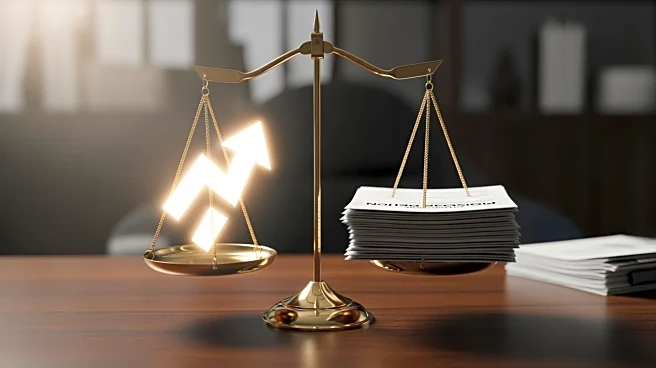What's Happening?
Justice Elena Kagan has expressed concerns over the Supreme Court's use of the shadow docket, a process that allows the court to make decisions quickly without providing detailed explanations. This practice has been increasingly used, particularly during President Trump's administration, where emergency appeals often succeeded without full briefing or argument. Justice Kagan emphasized the court's responsibility to better explain its decisions, highlighting the potential long-term implications of rulings made without transparency. The shadow docket has been used for various urgent matters, including death penalty appeals and election challenges, but its frequent use for policy decisions has raised questions about judicial accountability.
AD
Why It's Important?
The use of the shadow docket has significant implications for U.S. public policy and governance. Decisions made without detailed explanations can affect federal policies, such as those related to COVID-19 and immigration, impacting millions of Americans. The lack of transparency may undermine public trust in the judiciary, as stakeholders are left without a clear understanding of the court's reasoning. This practice also highlights the influence of the court's conservative majority, which has often favored President Trump's policies. The broader impact includes potential shifts in legal precedents and the balance of power between the executive and judicial branches.
What's Next?
The criticism from Justice Kagan and other court members may lead to calls for reform in how the Supreme Court handles emergency cases. Legal experts and policymakers might advocate for more transparency and accountability in the court's decision-making process. As the court continues to face high-stakes cases, the pressure to provide detailed opinions could increase, potentially influencing future judicial practices. Stakeholders, including civil rights groups and legal scholars, may push for changes to ensure that significant policy decisions are accompanied by comprehensive explanations.
Beyond the Headlines
The shadow docket's use raises ethical questions about the balance between judicial efficiency and transparency. The practice may set a precedent for future administrations to bypass traditional legal processes, affecting the court's role as a check on executive power. Long-term, this could lead to shifts in how the judiciary is perceived and its role in shaping U.S. policy. The debate over the shadow docket also reflects broader tensions within the court regarding its approach to decision-making and the influence of political dynamics.











